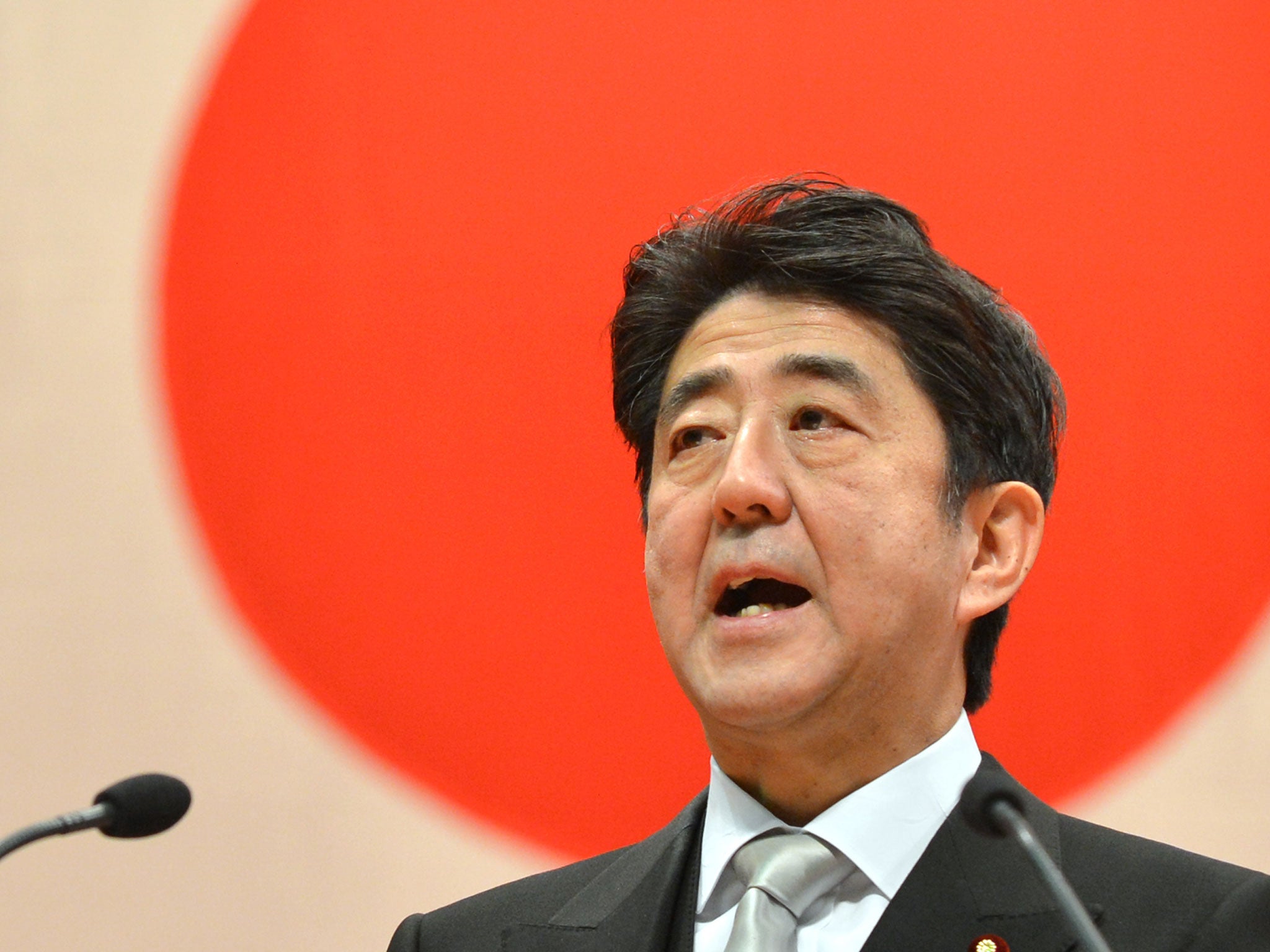The Japanese PM's 'Abenomics' is a revolution that might not change anything at all
Today after more than 20 years in recession ritual persists in Japan, and for most people life moves along on fixed rails


Your support helps us to tell the story
From reproductive rights to climate change to Big Tech, The Independent is on the ground when the story is developing. Whether it's investigating the financials of Elon Musk's pro-Trump PAC or producing our latest documentary, 'The A Word', which shines a light on the American women fighting for reproductive rights, we know how important it is to parse out the facts from the messaging.
At such a critical moment in US history, we need reporters on the ground. Your donation allows us to keep sending journalists to speak to both sides of the story.
The Independent is trusted by Americans across the entire political spectrum. And unlike many other quality news outlets, we choose not to lock Americans out of our reporting and analysis with paywalls. We believe quality journalism should be available to everyone, paid for by those who can afford it.
Your support makes all the difference.Once upon a time, Japan was considered quaint – the inspiration for Gilbert and Sullivan’s The Mikado.
Then, with the Second World War and the economic recovery that followed, it became a fearsome adversary. Today, after more than 20 years in recession, it is almost quaint again.
School uniforms have not changed since the turn of the 20th century: black, buttoned-up, Prussian-style jackets for boys, bowler hats and sailor suits with long, full skirts for girls. The ritualisation of social behaviour, with greetings and commercial transactions conducted according to rules as rigid as the tea ceremony, survived the end of feudalism and survives today.
Gender roles are fixed to a degree that few women in the West would accept. For more than two centuries, Japan shut itself happily away from the world, and one sees the same reclusive, introspective urge today. Don’t bother turning on your mobile phone: international roaming doesn’t work here. If you want to rent a local phone, it will cost you 35,000 yen (£235), unrefundable. Foreigners seem as thin on the ground as when I left in 1989. Real ability in foreign languages eludes the great majority.
For most Japanese, life moves along fixed rails. At the Foreign Correspondents’ Club where I was once a habitué, I was greeted fondly by staff who have been in the same jobs since I left. Once a sort of asylum for gaijin (foreigners), the club has been re-colonised by Japanese businessmen as the interest of foreign media in the country has tapered off, with China replacing Japan as the Asian giant to watch.
Japan shot up through the stratosphere in the 1980s, threatening to oust the US as the world’s largest economy, but the bursting of Tokyo’s property bubble led to more than two decades of deflation, accompanied by a stagnant economy and a demographic slide.
Like our own problems since 2008, those troubles refused to go away. Japan has been in this condition now for 20 years. If we in Britain suffer the same fate, we will be stuck in our present rut until 2028.
The late Emperor Hirohito famously informed his people of Japan’s defeat in the Second World War with the words, “The war situation has developed not necessarily to Japan’s advantage.” A similarly prim formulation might be found for the economic mess of the past decades. The bad economic weather tinges Japanese life a sepia shade: there is little drama, people keep their problems under wraps. If you can’t afford to rent a flat, you can take up residence in one of the internet cafés which have found a new market now that everyone carries a smart phone. The proprieties are observed. Nobody flaunts their misery. And because Japan is so homogeneous, it sails calmly on.
The Japanese, so carefully buttoned up, have reserved their anger for the privacy of the polling booth, sending one prime minister after another home after humiliatingly short leases on power. The present incumbent, Shinzo Abe, who survived as PM for less than a year after his first elevation in 2006, has resolved to change all that by deliberately injecting inflation into the economy, doubling the monetary base by printing massive amounts of money and trying to force capital out of safe, low-yield government bonds into riskier but potentially more lucrative investments. He also intends to blast through some of the many tight-knit structural impediments to growth, such as the paucity of women in the labour force.
“Abenomics” has certainly grabbed the world’s attention: in the Financial Times this week, David Pilling called Mr Abe’s bid to go “hell for leather for inflation” reminiscent, in strategic terms, “of the notorious attack on Pearl Harbor”. By pre-emptively trying to provoke inflation, he said, “Japan is trying something radically new”, adding that “the policy may actually work”. The Economist called it “a hugely bold experiment”.
Such an experiment might be expected to lead to dramatic changes in the laboratory-nation where it is performed. But my bet is that, when it’s all over, the Japanese will still be bowing deeply to each other and their daughters will still go to school in sailor suits.
Join our commenting forum
Join thought-provoking conversations, follow other Independent readers and see their replies
Comments